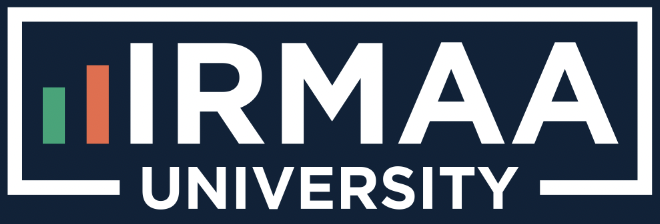This is a question that has been debated by financial professionals for years. Indexed Universal Life Insurance (IUL) policies have become increasingly popular as an alternative to traditional life insurance and investments like mutual funds, due to their potential for higher returns linked to the stock market. In this blog post, we will explore the various reasons why IUL can be a valuable addition to your financial portfolio.
We’ll discuss the upside potential of indexed universal life insurance through its flexibility in premium payments and death benefits, as well as tax-free gains via policy loans. Additionally, we’ll examine how investing in IUL can help reduce Medicare’s IRMAA charges by offering unique tax advantages and minimizing taxable income during retirement.
Furthermore, we will delve into competitive pricing driven by index-based dividend rates and formula-based determination of these rates leading to lower costs within the insurance industry. Lastly, we’ll weigh the pros and cons of IUL policies while considering individual needs and preferences before making any investment decisions.
To ensure you make informed choices about your financial future with respect to indexed universal life insurance products, it’s crucial to understand their complexities thoroughly. We encourage you not only read through our comprehensive analysis but also consult with a trusted financial professional for personalized guidance on why IUL isn’t a bad financial instrument for many individuals.
Table of Contents:
- The Upside Potential of Indexed Universal Life Insurance
- Comparing Indexed Universal Life Insurance to Whole-Life Coverage
- Addressing Underperformance Concerns with Indexed Universal Life Policies
- Reducing Medicare IRMAA Through Indexed Universal Life Investments
- Indexed Universal Life Insurance vs. Term Life Insurance
- FAQs in Relation to Why Iul Isnt a Bad Investment
- Conclusion
The Upside Potential of Indexed Universal Life Insurance
Indexed universal life (IUL) insurance policies offer a unique combination of financial protection and investment potential. Unlike other permanent life insurance options, IULs provide the opportunity for greater upside potential, flexibility, and tax-free gains by investing yearly interest income in options on one or more indices.
Flexibility and Growth Opportunities with Indexed Investments
IUL policies allow policyholders to participate in the growth of various stock market indices, such as the S&P 500 or NASDAQ-100. This exposure to multiple indexes provides an opportunity for potentially higher returns compared to standard universal life insurance while still offering a guaranteed minimum interest rate to protect against market downturns.
Tax Advantages Offered Through Life Insurance Policies
One major benefit of IUL policies is their ability to grow cash value on a tax-deferred basis. As long as funds remain within the policy, any gains are not subject to income taxes. Additionally, withdrawals from an IUL can be structured as loans against the policy’s cash value which allows individuals access to their money without triggering taxable events – providing significant advantages over traditional mutual funds.
Comparing Indexed Universal Life Insurance to Whole-Life Coverage
While both indexed universal life insurance (IUL) and whole-life coverage share similarities, there are key differences that can impact your financial planning. One of the main distinctions lies in how dividend rates are determined for each type of policy.
Formula-based Dividend Rates versus Insurer’s Discretion
In IUL policies, dividend rates are based on a formula tied to the performance of one or more indices, such as the S&P 500. This means that your potential returns depend on changes within these indexes themselves. On the other hand, with whole-life coverage plans, insurers have more discretion when it comes to determining dividend payouts. As a result, IUL offers an opportunity for potentially higher returns due to its link with market performance.
Competitive Pricing Driven by Index Performance
The competition-driven pricing offered by IUL policies provides better value compared to traditional whole life insurance products since payouts rely on index performance rather than arbitrary decisions made internally by companies offering coverage plans. By choosing an indexed universal life insurance product over a standard whole-life plan, you’re taking advantage of this competitive pricing structure while still benefiting from the security and peace-of-mind provided by permanent life insurance options.
Addressing Underperformance Concerns with Indexed Universal Life Policies
Critics of indexed universal life insurance (IUL) often argue that over long periods, direct investment into an index fund tracking similar stocks could yield better results due to fees associated exclusively with insurers’ offerings. However, proponents maintain that unique tax advantages offered through life insurance policies can make up for this underperformance when considering individual needs and preferences along personal circumstances.
Weighing the Pros and Cons of Direct Index Investments vs. IULs
- Direct index investments: These typically have lower costs compared to IUL policies but lack the death benefit protection provided by life insurance products.
- IUL policies: While they may come with higher fees than direct index investments, they offer a combination of market-linked growth potential and financial protection in the form of a death benefit.
Factoring in Unique Tax Benefits When Making Investment Decisions
The tax advantages offered by indexed universal life insurance should not be overlooked when comparing it to other financial products like mutual funds or stock market investments. For example, policyholders can enjoy tax-deferred growth on their cash value accumulation within an IUL policy. Additionally, loans taken against the cash value are generally not considered taxable income as long as certain conditions are met (source). This makes IULs particularly attractive for those seeking both wealth accumulation and estate planning benefits while minimizing their overall tax liability.
Reducing Medicare IRMAA Through Indexed Universal Life Investments
Investing in indexed universal life insurance can be beneficial when it comes to reducing Medicare’s Income Related Monthly Adjustment Amount (IRMAA). As stock market declines may impact earnings from work during retirement years, Social Security benefits become crucial sources of income. Having an additional source like an IUL policy can help mitigate these risks while also lowering IRMAA.
The Role of IUL Policies in Lowering Medicare IRMAA
IUL policies provide tax-free death benefits and the potential for cash value growth linked to a financial index, such as the S&P 500. This feature allows policyholders to build wealth over time without directly investing in the stock market or mutual funds. The cash value within an IUL policy grows on a tax-deferred basis, which means that withdrawals made during retirement are not considered taxable income by Medicare.
Balancing Stock Market Risks and Social Security Benefits with IUL Investments
- Risk management: By diversifying your investment portfolio with indexed universal life insurance products, you reduce exposure to volatile markets and ensure steady returns regardless of economic conditions.
- Tax advantages: Unlike traditional investment vehicles like stocks or mutual funds, gains from IUL policies are not subject to capital gains taxes; this makes them particularly attractive for high-income earners looking for ways to minimize their overall tax burden.
- Social Security optimization: Since withdrawals from your IUL policy are not considered taxable income, they will not impact your Social Security benefits or trigger an increase in Medicare premiums due to IRMAA.
Indexed Universal Life Insurance vs. Term Life Insurance
When it comes to choosing a life insurance policy, individuals often find themselves comparing indexed universal life (IUL) insurance and term life insurance. While both options provide financial protection for your family, there are key differences that may impact your decision.
Affordability and Simplicity of Term Life Insurance
Term life insurance is known for its affordability and simplicity. It offers coverage for a specified period, usually 10-30 years, with fixed premiums throughout the term. If the insured passes away during this time frame, their beneficiaries receive the death benefit. However, if they outlive the term or choose to cancel early, no benefits are paid out.
Weighing the Pros and Cons between IULs and Term Life
- IUL policies: These products offer flexibility in premium payments as well as potential growth through index-linked investments while providing lifelong coverage. Additionally, IULs come with tax advantages such as tax-free loans against cash value accumulation.
- Term life policies: Although more affordable than IULs initially, these plans lack an investment component which could limit long-term wealth-building opportunities. Moreover, once a term expires or is canceled prematurely without renewal or conversion into permanent coverage like whole-life or indexed universal life insurance – all premiums paid become lost expenses without any return on investment.
In order to make an informed decision about which type of coverage best suits their needs while also considering tax advantages offered through life insurance policies, individuals should carefully weigh the benefits and drawbacks of both IULs and term life. Grasping the intricacies of each option can guarantee that your policy corresponds to your financial objectives and individual situation.
FAQs in Relation to Why IUL Isn’t a Bad Investment
Is an IUL a bad investment?
An Indexed Universal Life (IUL) insurance policy can be a good financial instrument for some individuals, as it offers flexibility in premium payments and death benefits, tax-free gains through policy loans, and unique tax advantages. However, it may not suit everyone’s needs due to its complexity and potential fees. Consulting with a financial professional is essential before implementing one.
Why is an IUL a good financial instrument?
IUL policies are considered good financial instruments because they provide flexibility, tax-free growth on cash value, competitive pricing driven by index-based dividend rates, and the ability to reduce Medicare’s IRMAA surcharges. These features make them attractive for those seeking long-term financial planning solutions that offer both life insurance coverage and retirement income strategies.
What are the drawbacks of IUL?
Some drawbacks of IUL policies include their complexity compared to other life insurance products, potential high fees or surrender charges if you withdraw funds early or cancel your policy prematurely, and limited upside potential based on capped returns from market indices used in determining dividend rates. These factors may make them less suitable for certain investors.
Does an IUL have living benefits?
Yes, many Indexed Universal Life Insurance policies offer living benefits such as accelerated death benefit riders which allow access to a portion of the death benefit while still alive in case of terminal illness or chronic conditions (source). Additionally, the cash value component can be accessed tax-free through policy loans for various financial needs during one’s lifetime.
Conclusion
Indexed Universal Life Insurance (IUL) offers a multitude of advantages that make it an attractive selection for those looking to amass wealth while safeguarding their family. From the flexibility in premium payments and death benefits to tax-free gains through policy loans, IUL policies offer unique advantages that can help investors achieve their financial goals.
While there are some complexities associated with IUL policies, careful review of policy documents and consultation with a financial professional can help individuals make informed decisions about whether this type of investment is right for them.
If you’re interested in learning more about why IUL isn’t a bad investment choice, contact Healthcare Retirement Planner today. At Project, our experts can help you develop a strategy to secure your financial future and optimize your retirement savings.


